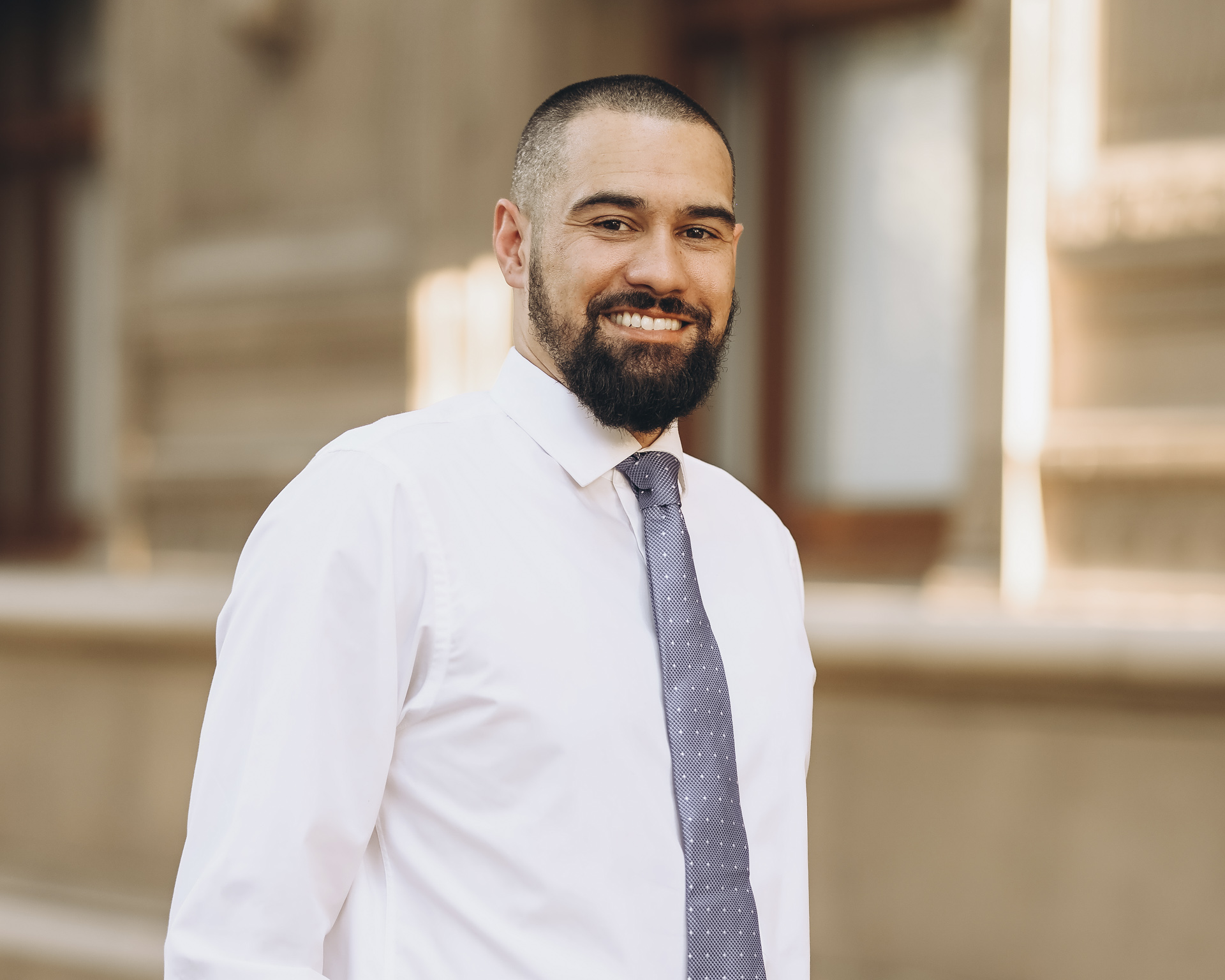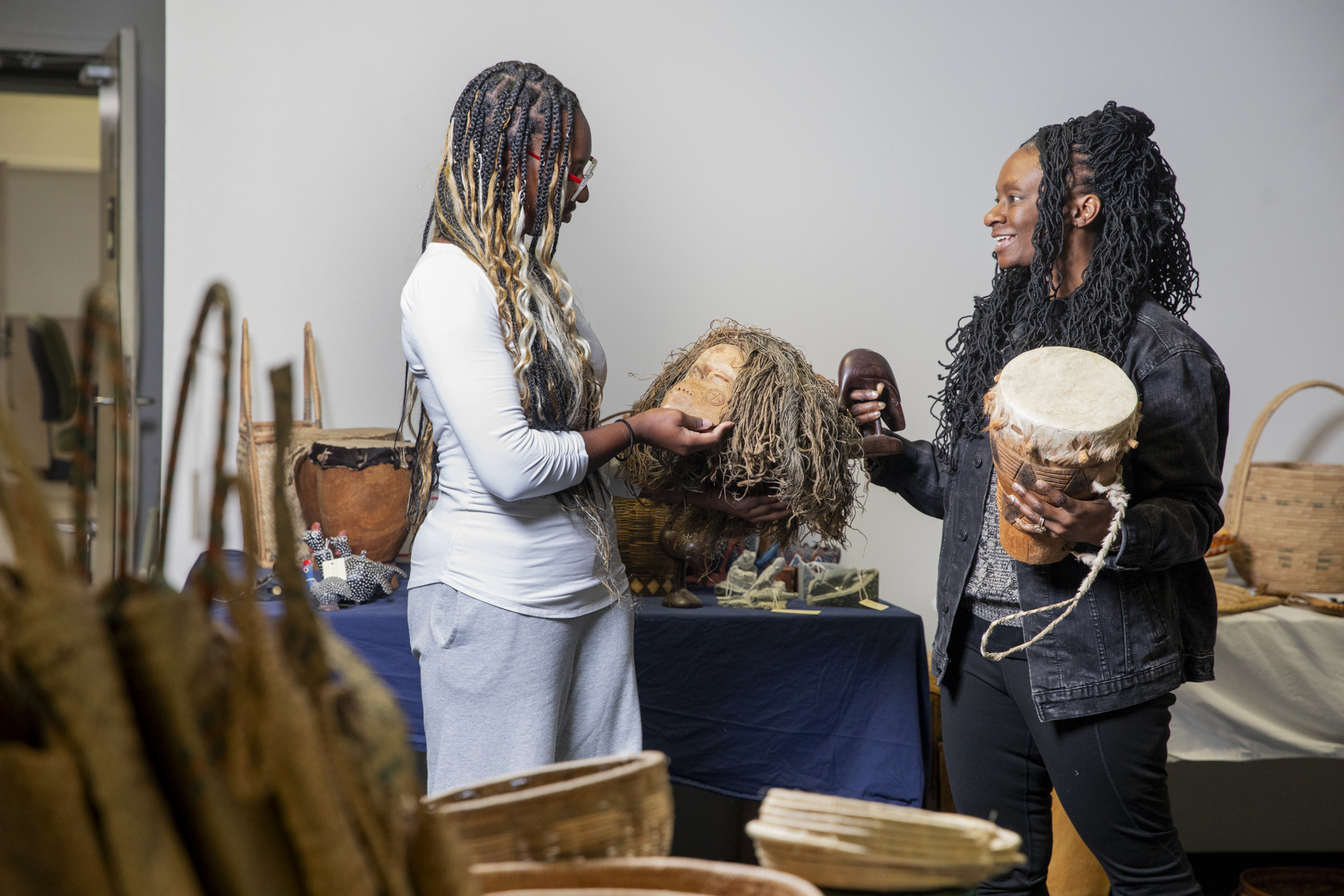Story Content
Sac State professor’s new study finds Black men did not move from Democratic Party to Trump

February 20, 2025
As a graduate student, Christopher Towler ran into a big problem when he was writing his dissertation on Black voters during the Obama years.
There was no data to study.
“There was very little actual data that had been collected since the turn of the century, the 2000s, on Black folk. It was mostly from the ‘80s and ‘90s,” said Towler, a Political Science professor at Sacramento State.
“We have this moment when we’re electing the first Black president, and there’s no data to tell us how Black people felt during that historical moment in American history.”
He’s been on a mission to change that ever since. For nearly a decade, Towler has spearheaded the Black Voter Project, a series of public opinion polls focused on collecting accurate and representative data of the Black community.
The project’s latest study – funded by Sac State’s Center for California Studies – disputes media reports leading up to the election that Black men were moving away from the Democratic Party in favor of Donald Trump.
“If you want to answer the really tough questions about voter turnout and vote choice, enthusiasm and apathy, you need to have the data,” Towler said. “Using data for other groups that includes only a small sample of Black folks and then extrapolating those answers has a lot of problems.”
Such extrapolation led to talk among political pundits and the media about Black men moving away from the Democratic Party and voting for Trump. Towler’s survey, however, shows that wasn’t the case.
Story continues below the graph.

Support for Kamala Harris among Black men increased by 24% over time, the survey found, with 82% of Black men voting for Harris on Election Day. Support for Trump, however, dropped to 17%, matching 2020 exit polls.
Other findings include:
- Black support for Harris in 2024 was similar to that of Joe Biden in 2020, with 86% of Black voters choosing Harris compared to 12% for Trump.
- Most Black voters, 57%, voted in person.
- Black voters voted Democratic down the ballot, 72%, with 13% splitting the ticket.
- The majority of Black voters disapprove of mass deportation.
Using nonpartisan, online polls administered by YouGov, the study surveyed African American respondents from all 50 states four times during 2024. The first survey took place between March and April of 2024, followed by another between July and August, just after Harris replaced Biden at the top of the ticket. The third was fielded in October, before the election, and the fourth in December, more than a month after Donald Trump was elected.
Questions dug into racial identity, household types, race of partners and spouses, and attitudes about racial equality in America. Such questions, Towler said, are absent from most election polls.
“There needs to be a way to have a true, rigorous and thorough analysis of Black American opinions if we’re going to talk about them as part of the electorate, as part of politics and society at all,” he said.
“It’s impossible to discuss what political leadership should do, what sort of party platforms the different parties should run and policies they should push forward, if we don’t have an accurate measure as to what the interests of the community are.”
The Black Voter Project is particularly unique because respondents were recontacted over the course of the presidential campaign. That allowed the study to see, for example, that Black support for the Democratic party grew as Harris took over the presidential ticket and continued to increase up to the election before reversing after.
“We can actually say these are real changes in attitudes, because these are the same people saying different things at different points in time,” Towler said.
The surveys also had to include a large enough sample of Black Americans to run statistical models and test theories the same way existing polls conduct surveys of the total electorate, which is primarily white.
“Being able to capture what issues are important to Black voters is very valuable. It reminds us what government is for – to serve the people and to address their concerns.” -- Leonor Ehling, executive director of the Center for California Studies
In addition, Towler said, false or misleading information can also impact election results. While the survey found that the percentage of Black voters supporting the Democratic candidate remained the same from 2020, the number of voters went down.
“(Misinformation) can depress votes and create apathy,” Towler said. “It simply turns off voters and gives them a reason not to vote.”
Leonor Ehling, executive director of the Center for California Studies, echoed those concerns.
“It’s important, especially in this time, that we talk about specific groups that have been systematically marginalized on purpose,” Ehling said. “We need to combat that marginalization with something that includes people in the research, not as 8% of the population, but looks more directly at this important population.”
The work Towler is doing with the Black Voter Project is well-aligned with that of the center, she added.
“Our mission is to bridge academia and the public policy world,” Ehling said. “Given the historic, systemic oppression of African Americans in California and this country, it’s important to ensure that the perspectives of this community are accurately represented.
“Being able to capture what issues are important to Black voters is very valuable. It reminds us what government is for – to serve the people and to address their concerns.”
The results of Towler’s 2017 pilot study are publicly available through the Roper Center for Public Opinion Research. He hopes the other Black Voter Project surveys will eventually also be available for anyone to download and use for their own analysis in the future.
While the Black Voter Project aims to fill a gap in research about Black voters, Towler said he hopes similar projects will help other communities.
“I know when it comes to studying other communities like the Asian American Pacific Islander community, even the Latino community, there’s a dearth of strong, academic data that’s collected in a rigorous way for detailed analysis,” Towler said.
He will present his latest findings on campus Feb. 20. The “Envisioning California Speaker” event, co-sponsored by the Center for California Studies and Greater Sacramento Urban League, is from 5-6:30 p.m. in The WELL’s third-floor Terrace Suite.
Editor's Pick
Media Resources
Faculty/Staff Resources
Looking for a Faculty Expert?
Contact University Communications
(916) 217-8366
communications@csus.edu


